People
Principal Investigator
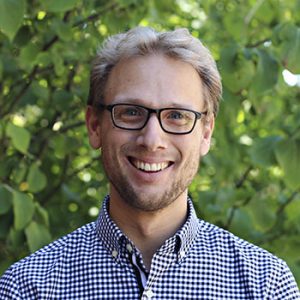
Dr. Jason Yeatman is an Associate Professor in the Graduate School of Education at Stanford University and the Division of Developmental and Behavioral Pediatrics at Stanford University School of Medicine. Dr. Yeatman completed his PhD in Psychology at Stanford where he studied the neurobiology of literacy and developed new brain imaging methods for studying the relationship between brain plasticity and learning. After finishing his PhD, he took a faculty position at the University of Washington’s Institute for Learning and Brain Sciences before returning to Stanford.
As the director of the Brain Development and Education Lab, the overarching goal of his research is to understand the mechanisms that underlie the process of learning to read, how these mechanisms differ in children with dyslexia, and to design literacy intervention programs that are effective across the wide spectrum of learning differences. His lab employs a variety of structural and functional neuroimaging techniques to study how a child’s experience with reading instruction shapes the development of brain circuits that are specialized for this unique cognitive function. More recently the lab has transitioned to developing and scaling new approaches to educational assessment – the Rapid Online Assessment of Reading or ROAR.
jyeatman@stanford.edu | CV | Google Scholar
Directors
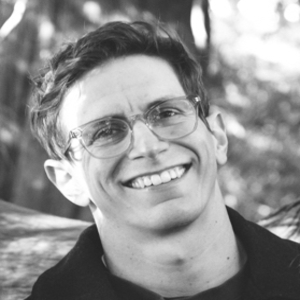
Adam Richie-Halford is the Director of Technology and Innovation for ROAR. He is also a Research and Development Scientist and Engineer in the Division of Developmental-Behavioral Pediatrics at Stanford University and an affiliate of the eScience Institute at the University of Washington. He received his Ph.D. in physics from the University of Washington. Along the way he also served as an officer in the Air Force and as a Peace Corps volunteer in the Kingdom of Morocco. Adam is interested in developing statistical learning techniques for the analysis of neuroimaging data and new browser-based technologies to assist in the deep phenotyping of dyslexia. He is also interested in developing open-source software tools to enable other scientists to analyze and share large datasets. Adam is a member of the Software and Data Carpentry communities.
adamrh@stanford.edu | Personal Website | GitHub | ORCiD | Google Scholar

Carrie Townley-Flores is the Director of Research and Partnerships for the Rapid Online Assessment of Reading (ROAR). She completed her PhD in Education Policy at Stanford University where she used quantitative methods to study national trends in education inequality and to find state and district interventions that mitigate it. She believes that by working together across the country, we can change how we address foundational reading skills for students of all ages, and everyone can learn to read. Before coming to Stanford, Carrie taught elementary, middle, and high school in the U.S. and Finland. She wishes ROAR had existed back then. She has a B.A. in English and Education from University of Michigan.
ctflores@stanford.edu | Google Scholar | ORCiD
Data Scientists

Kelly Wentzlof joined the lab after receiving her B.S. in Psychology and Statistics from Indiana University. During her time as an undergrad, Kelly worked in Dr. Amy Holtzworth-Munroe’s lab where she analyzed the efficacy of various mediation tactics for families experiencing interpersonal violence. Kelly has also worked as a tutor and an undergraduate instructor for various math and statistics courses. She is particularly interested in the intersection between data science, psychology, and education.
Post-Doctoral Scholars

Maha Ramamurthy is a postdoctoral fellow at Stanford’s Brain Development and Education Lab. Her research at Stanford focuses on exploring the link between visual deficits in Dyslexia. She has two broad approaches to understand this link: i) Lab-based, Cross-Sectional, one-time Studies to understand the visual mechanisms that relate to reading abilities and ii) Field-based, Population-level, longitudinal Studies to extend those related measures to a developmentally younger population to understand developmental trajectories. Since some sensory abilities developmentally precede higher cognitive abilities, understanding the developmental trajectories of the visual mechanisms offers the potential for developing early screening tools. She uses eye-tracking, psychophysics, electrophysiological and behavioral assessments to explore the relationship between visual function and cognitive outcomes, in neuro-typical and atypical populations and her future research vision is to understand the developmental intersection of visual processing mechanisms and various neuro-cognitive abilities in neuro diverse population.
maha10@stanford.edu | Personal Website | LinkedIn | Google Scholar | GitHub

Maya Yablonski is broadly interested in the neural bases of language, reading and learning. Her PhD research at Bar Ilan University focused on white matter correlates of reading in adults, and evaluated their similarities among English and Hebrew readers. Following her interest in the development of langauge skills, Maya’s research at Stanford explores reading and brain development in children. Maya’s work combines diffusion, structural and functional MRI to shed light on mechanisms of brain plasticity that accompany learning to read.
mayay@stanford.edu | Google Scholar | LinkedIn

Dr. Tongtong Zou is a postdoctoral scholar conducting psychometric research in support of the Rapid Online Assessment of Reading (ROAR) project. She earned her Ph.D. in Educational Psychology from the University of Wisconsin, specializing in educational measurement. She also holds an M.S. degree in Applied Statistics from Columbia University and a B.A. degree in Civic Education from the University of Chinese Academy of Social Sciences. Dr. Zou’s research broadly focuses on developing quantitative methods that enhance score comparability across assessments, particularly when test forms differ due to various person or item factors, within the framework of Item Response Theory. Her previous work has addressed topics such as evaluating person fit in non-cognitive assessments, modeling longitudinal personal growth using informative computer adaptive testing data, and designing linkage strategies for multiple test forms to improve test security.
tongtzou@stanford.edu

Youngsun Moon is a postdoctoral scholar at the Stanford Graduate School of Education, where she works on the Rapid Online Assessment of Reading (ROAR) project. She earned her Ph.D. in Education from the University of California, Irvine, with a focus on early literacy development, and holds an M.A. and B.A. from Korea University. At Stanford, she is working on expanding the ROAR assessment suite and investigating measurement bias to ensure assessments function fairly across diverse student populations. Youngsun’s broader research explores how children develop foundational reading and writing skills across varied linguistic and educational contexts. She is especially interested in the development and role of spelling, and how assessment data can effectively be used to track and support students’ literacy growth over time. She is excited to work on the ROAR project to help bridge research and practice so that we can make meaningful changes that support children in becoming better readers.
moonys@stanford.edu | Google Scholar | LinkedIn | Personal Website | ORCID
Graduate Students
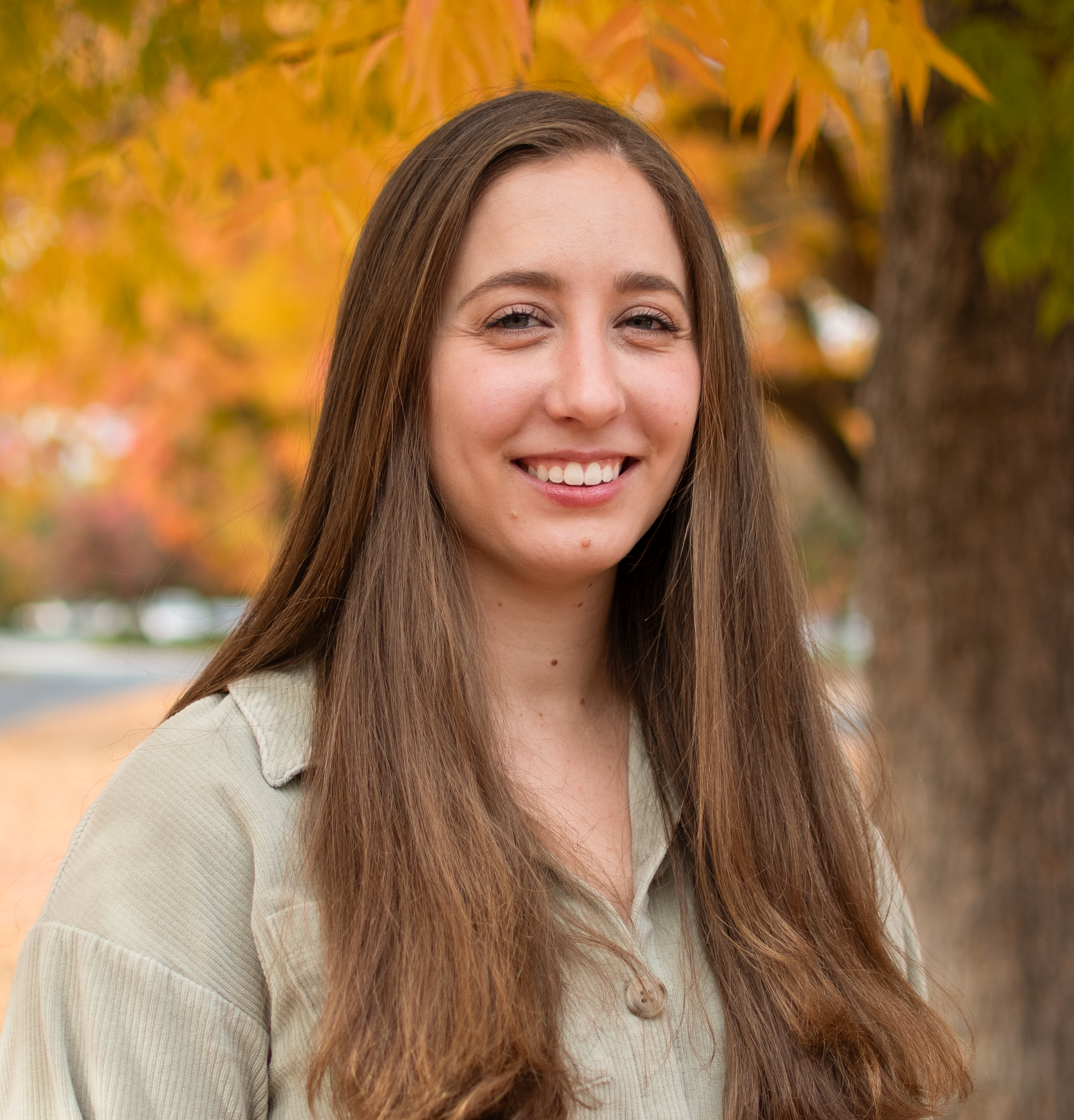
Jamie Mitchell is a PhD student in the Graduate School of Education’s Developmental and Psychological Sciences program at Stanford University. She received her B.A. in Education Sciences from the University of California, Irvine, focusing on Children’s learning and Development and along with a minor in Psychology and Social Behavior. Her current research interests focus on understanding the relationship between behavioral measures of reading ability and neural mechanisms of reading. She is particularly interested in uncovering neural profiles of dyslexia and how these profiles relate to different behavioral profiles of dyslexia. Jamie is also interested in understanding the neural mechanisms that underly the processing of visual forms of language (i.e. text and signed languages) in Deaf and Hard-of-Hearing individuals.
jamiel12@stanford.edu | ORCiD | Google Scholar | LinkedIn | Personal Website

Wanjing Anya Ma is a Ph.D. candidate in the Graduate School of Education’s Learning Sciences and Technology Design program at Stanford University. She received her B.S. in Computer Science and Teaching Chemistry 7-12 from New York University and M.S.Ed in Learning Sciences and Technologies from the University of Pennsylvania. Anya’s previous research focused on science education and learning analytics. After teaching middle school chemistry for two years in Brooklyn, NY, she became more interested in developing computational learning tools to support children with special needs. At Stanford, Anya is excited to explore adaptive reading assessments and interventions for children with varied reading abilities.
wanjingm@stanford.edu | LinkedIn | Google Scholar | Personal Website | GitHub

Jewelia is a PhD student in the Neuroscience Area of the Psychology Department at Stanford University working with Jason Yeatman and Kalanit Grill-Spector. She received her B.A. in Psychology and a minor in Early Development and Learning Science at UC Berkeley. Her PhD is work is focused on understanding how education influences the relationship between gray matter morphology, white matter connections, and brain function in the visual system. In particular, she is interested in how these entities change as children learn to read and enter school for the first time. Additionally, she is interested in how the brain develops across the full span of childhood, as her work also looks into these changes in infancy and adolescence.
jkyao@stanford.edu | LinkedIn | Google Scholar | ORCID
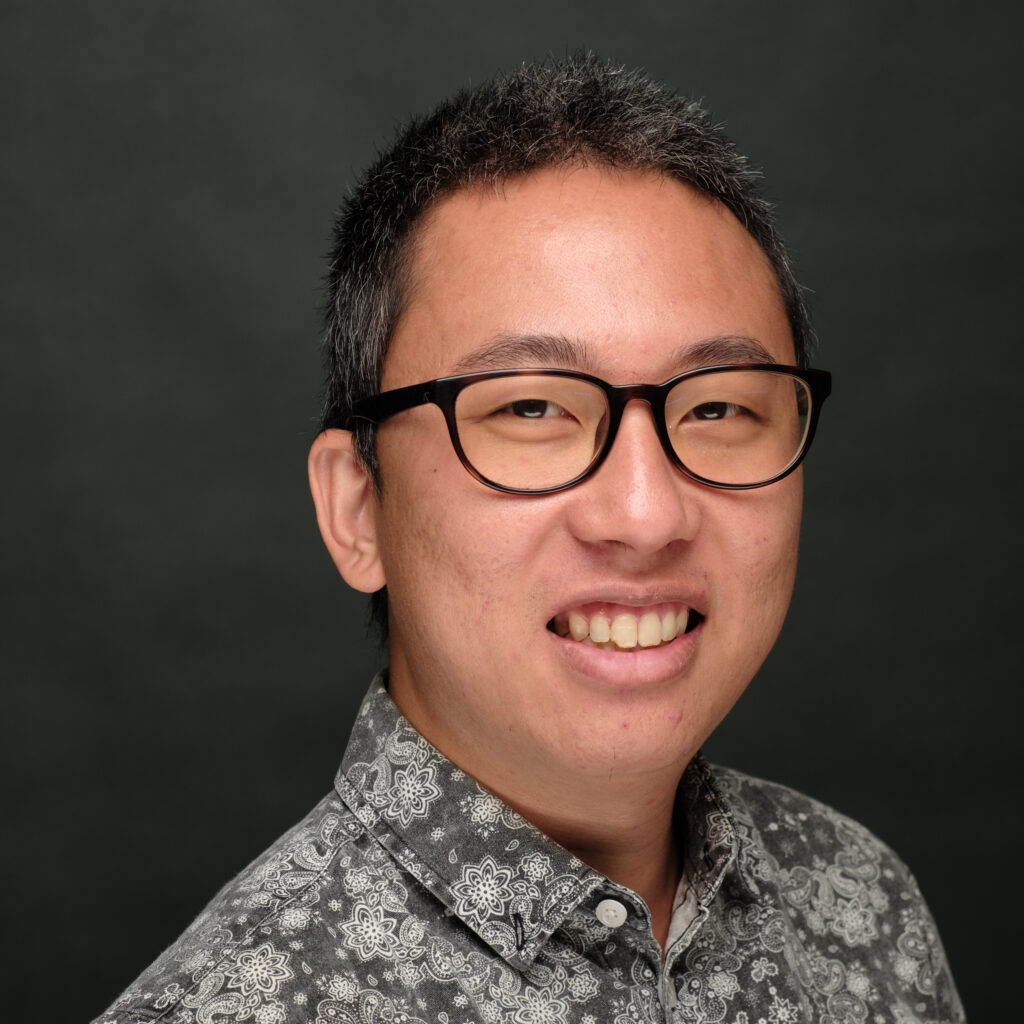
Howard Chiu is a PhD student in the Graduate School of Education’s Developmental and Psychological Sciences program at Stanford University. He received his B.A. in Experimental Psychology from the University of Oxford and M.Ed. in Educational Psychology from the Melbourne Graduate School of Education. Prior to coming to Stanford, Howard worked in Singapore as an educational psychologist in the Ministry of Education’s Special Educational Needs Division. His research will focus on using transdiagnostic longitudinal neuroimaging methods to understand the developmental trajectories of individuals, so as to better understand how neural development relates to educational and other well-being outcomes. He is also interested in how environmental effects and interventions can alter these trajectories.
howardchiu@stanford.edu | Personal Website

Kruttika Bhat is a PhD student in the Learning Sciences and Technology Design and Developmental and Psychological Sciences programs, working with Jason Yeatman and Ben Domingue. Before coming to Stanford, she received a B.Tech. and M.Tech. in Computer Engineering from the Indian Institute of Information Technology, Design, and Manufacturing, Kancheepuram. Her previous research was in cognitive neuroscience and focused on EEG and behavioral analysis for answering questions on vision and attention. Currently, Kruttika’s research is on developing learning tools for assessment and intervention. Through this work, she hopes to better understand the cognitive mechanisms involved in reading and math, particularly for children with learning differences.
kruttika@stanford.edu | LinkedIn | GitHub

Tonya Murray is a PhD student in the Learning Sciences and Technology Design program in the Graduate School of Education at Stanford University. Her current research focuses on foundational reading assessments and the translation of reading research to practical application in schools. Before coming to Stanford, Tonya received a B.S. in Computer Science from Washington University in St. Louis and worked for many years as a software engineer and project manager. She was inspired to become a reading researcher by seeing the progress her dyslexic son made when he received effective intervention.

Mia Jimenez joined the lab after completing her B.A. at the University of Pennsylvania in Psychology and Criminology. As an undergrad, Mia worked with Dr. Allyson Mackey’s Changing Brain Lab, where she focused on understanding the neural and environmental factors that influence academic resilience in students from underprivileged backgrounds. Mia’s research interests center on the intersection of psychology, criminology, and education, particularly the neural correlates of how environments shape brain and behavior in ways that influence developmental trajectories, including academic outcomes. She is passionate about exploring and identifying protective factors that foster resilience and improve educational and social outcomes. Outside of the lab, Mia can be found exploring dog parks and hiking trails with her puppy, Nala.
Research Coordinators

Maya Brunton joined the lab after earning her B.S. in Biology from the University of Puget Sound and her M.S. in Human Factors Engineering, with an emphasis in Human-Computer Interaction, from San Jose State University. Maya is excited to combine her experience in research, design, and product development to support the Rapid Online Assessment of Reading (ROAR) project. Outside of the lab, Maya runs a book club, bakes, eats, and enjoys anything crafty or creative.

Sarahi Muñoz joined the lab shortly after receiving her B.A. in Cognitive Science from UC Berkeley. During her undergraduate studies, she worked in Dr. David Whitney’s Lab for Perception and Action, investigating methods for assessing emotional intelligence through complex dynamic visual stimuli. Additionally, Sarahi contributed to Dr. Jan Engelmann’s Lab, exploring the development of children’s social and cognitive abilities. She is interested in the cognitive mechanisms involved in learning and development, specifically how interventions can drive changes in brain connections and enhance the interplay between neuroscience and education.

May Fahrenthold joined the lab after earning her B.A. in Quantitative Social Science focused in Education from Dartmouth College and her M.A.T. in Inclusive Childhood Education from New York University. She also holds an Elementary Education and Special Education teaching credential from New York and worked as a 4th grade teacher in the Bronx and Brooklyn. May is passionate about the science of education and equipping teachers with research-backed instructional tools and strategies. She is particularly interested in reducing the research-to-practice gap between education research labs and the classroom.
Undergraduate Research Assistants

Alina Davison is a senior pursuing a major in Symbolic Systems with a concentration in Neuroscience, and a minor in Comparative Studies in Race and Ethnicity. Her interests lie at the intersection of the brain, technology, and social impact. Currently, she is working towards her Honors Thesis, which looks at the influence of lexical properties on neural activation in dyslexic readers. She is interested in the use of fMRI and EEG to answer her questions about cognitive function.

Annalise Mak is a freshman pursuing a double major in Psychology and Symbolic Systems with a concentration in Neuroscience. Her interests lie at the intersection of childhood brain development, technology and special needs education. In her spare time, she enjoys mentoring and tutoring very young harpists as well as underserved youth.

Anna Colpack is a sophomore majoring in Psychology. Her academic interests lie at the intersection of developmental and clinical psychology, with a particular focus on how mindset influences behavior, performance, and mental well-being. She is especially passionate about advancing support for children with dyslexia, aiming to promote empowerment and resilience. In addition to her academic pursuits, Anna is a student-athlete on the Stanford Women’s Varsity Lacrosse team and is actively engaged in youth mentorship through coaching.

Mosope Aina Bio coming soon…
Software Engineers

Emily Arteaga Garcia is a Latina with a Master’s in Computer Science and a member of the development team for the ROAR (Rapid Online Assessment of Reading) project at Stanford University. She focuses on building educational tools and platforms that support reading assessments. Emily works on creating inclusive and user-friendly digital experiences. She is also passionate about advocating for women in tech and enjoys contributing to projects that bridge the gap between technology and education.

Elijah Kelly
Elijah Kelly is a software engineer for the ROAR project. He holds a B.S. in Computer Science from a school in his home state, Missouri. On weekends, you can find Elijah hiking, reading a book, or cooking.

Lucas Song
Lucas is a software engineer at ROAR.
Web Developers

Kyle Montville is a web developer with ROAR. Kyle spent six years as a high school physics teacher before joining the team, having taught in both New York and New Hampshire public schools. Kyle has a dual B.S. in physics & mathematics, as well as a Master of Arts in Teaching. Kyle loves cycling, reading, video games, board games, and coffee. Kyle lives in San Francisco with his wife and two cats.
Lab Loved Ones
Carrie’s Family
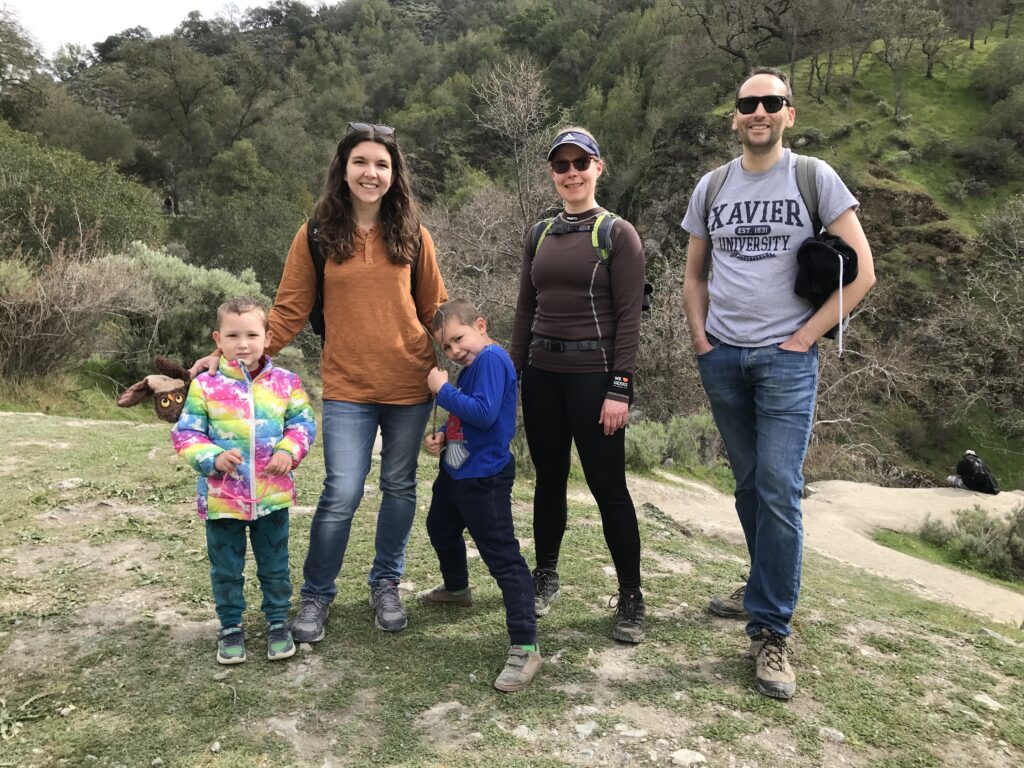
Carrie started grad school with a baby and a toddler, who have since grown up on Stanford’s campus. In their free time, they like to hike, camp, and swim all over California.
Jamie’s Family
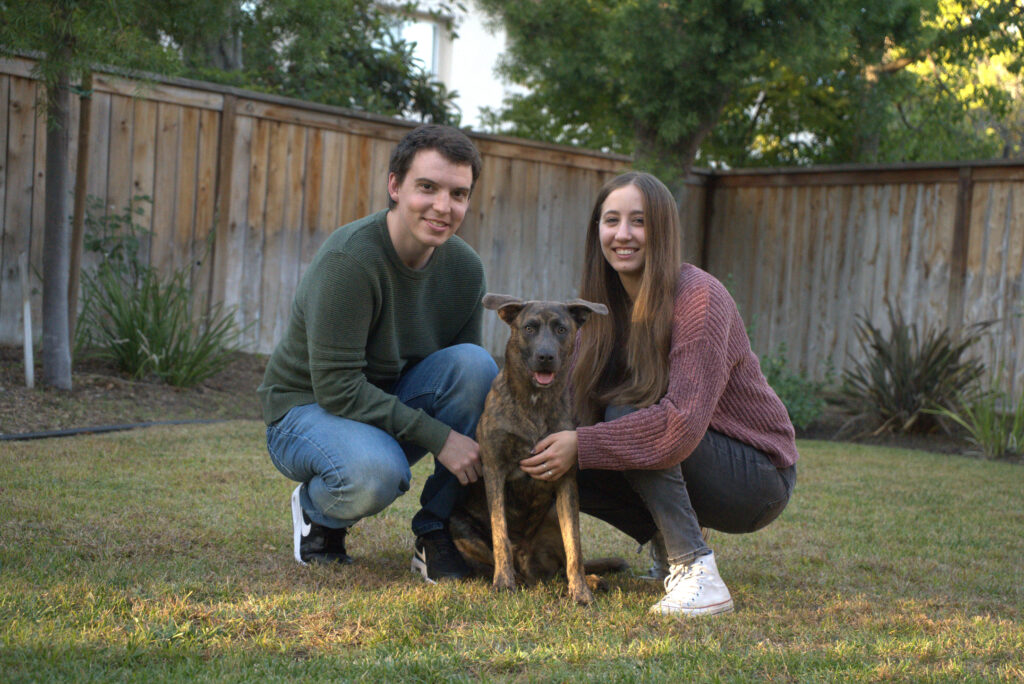
Jamie and Andy moved to Stanford from Southern California. They adopted their puppy, Baloo, in June of 2023 and spend almost all their free time playing with and training him. When they have the time, they like to watch movies, play games, and explore new restaurants.
Maya’s Family
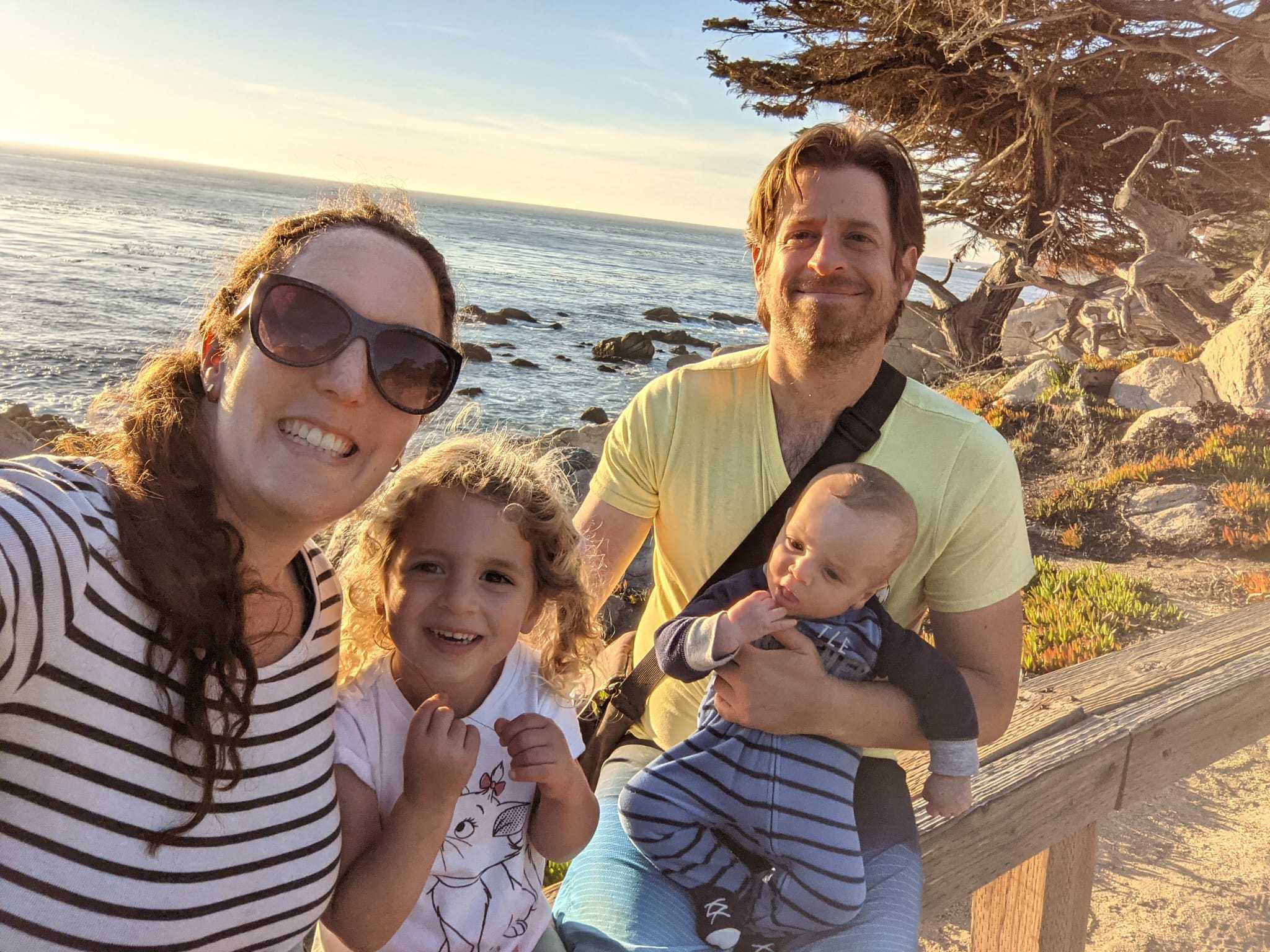
Maya is raising two bilingual kids that have gotten used to participating in brain and language experiments. Her family loves traveling and hiking, and their favorite pass time is exploring the beach.
Lab Alumni

Aryaman Taore

Zihan Zhou
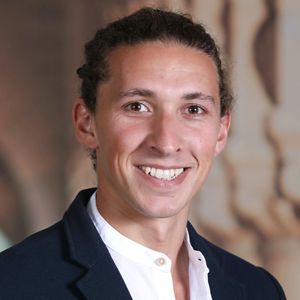
Julian M. Siebert

Ethan Roy
Postdoctoral Researcher, Stanford University

Hannah Stone
Graduate Student, University of California, Santa Barbara
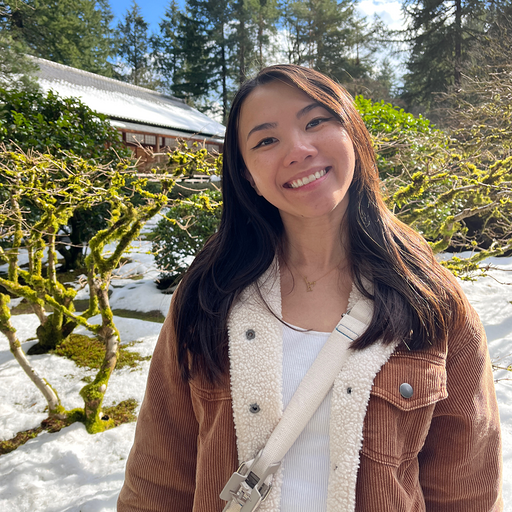
Jasmine Tran
Graduate Student, University of California, Irvine

Albu Ungashe
Graduate Student, Columbia University

Grace Adebogun

Megumi Takada
Graduate Student, Stanford University

Kenny Tang
Graduate Student, Vanderbilt University

Clementine Chou

Emily Kubota
Graduate Student, Stanford University

Alex White
Google Scholar

Patrick Donnelly
Google Scholar

Sung Jun Joo
Assistant Professor, Department of Psychology, Pusan University, Korea
Google Scholar

Libby Huber
Research Scientist, UW Institute for Learning & Brain Sciences

Elle O’Brien
Personal Website | Google Scholar

Douglas Strotdman
Joining the Lab
We’re excited you’re interested in joining our team! Below are some of the ways you can go about getting information on involvement opportunities.
Undergraduates
There are a few different ways that undergrads can get involved as RAs- whether that be through Cardinal Commitment, for course credit, etc. Typically we require an 8-10 hour weekly commitment for minimum 2 quarters. If you’re interested in being considered as an RA, fill out this form. Please note that we are not always looking to add to our team, but we keep record of these applications for when we are!
If you have specific questions, please reach out to any of our research coordinators.